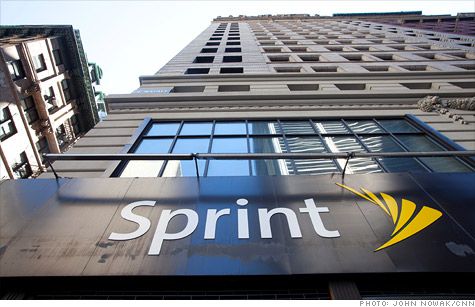Does T-Mobile really “need” a Sprint merger to be competitive?
The dust has settled, and we’ve started a new week. But don’t let that fool you in to thinking that T-Mobile and Sprint’s rumored merger won’t be mentioned. Predictably, after the earnings call and Q1 results were announced, analysts jumped on the news with their view on what the carrier’s doing right, what it’s doing wrong and what it needs for future success.
One such analyst is well-respected Walter Piecyk who reports on T-Mobile’s return to revenue growth for the first time in two years. As we published a couple of months back, it was clear that – at some point soon – T-Mobile would shift from dropping revenue to growing again, and it’s delivered. Magenta’s 2.4 million new subscribers, helped onboard by the ETF payment program, has boosted T-Mo’s revenue, although it still lost around $150 million last quarter. Revenue is up, but profits aren’t quite catching up. Piecyk – however – sees this loss as a good thing:
“Telecom is a scale business,” Piecyk told International Business Times. “You want as much revenue for your fixed costs as possible, so it’s very important to grow revenue.”
But, in this market, it’s not all about revenue and profits. It’s also got to be about market share. Logic would state that you can’t really have one without the other. The higher the percentage of the available market you have, the more money you’re going to make. And Verizon – despite having a poorer quarter in terms of additions – still grew its market share in what was T-Mobile’s best ever quarter.
And his analysis doesn’t really get any cheerier from there. Verizon’s CEO, Lowell McAdam believes the ETF scheme doesn’t buy loyalty, and that those Verizon customers who did switch over to T-Mobile will eventually switch back for its coverage. A point with which Piecyk agrees.
“With the growth of wireless data usage … it’s going to be increasingly difficult for Sprint and T-Mobile to individually be competitive with companies that can spend more than both of them combined on their network.”
At any moment, either of the big two companies could percievably become just as competitive as T-Mobile in terms of pricing. They both have large enough subscriber bases, with large enough revenue streams to compete with T-Mo “…if they elected to…”
So what’s the answer? How can T-Mobile continue to compete effectively, start making profit and keep its customers loyal? Apparently, a T-Mobile/Sprint combo.
“Competition is not always about the lower price, its also about building a better network,” Piecyk said. Since T-Mobile and Sprint pay competitors to access their wireless networks, it increases both companies’ costs. By combining their spectrum and revenues, the two “would have an opportunity to build networks that have faster speeds than existing operators … and the capacity to handle it.”
Does he have a case? Undoubtedly. If T-Mobile could keep its brand, merging with Sprint would more than double its subscriber base and put it on even terms with Verizon and AT&T in the market share war. And, with the spectrum and infrastructure in place, it could give its network a boost too. It would be a short-term, and immediately visible improvement.
I think the worry here for T-Mobile fans is that the merger somehow, magically gets over all the regulatory, and then the Magenta brand disappears. And everything good just disappears.
Truth is though, that there are huge regulatory hurdles. No matter how much Masayoshi Son, SoftBank’s CEO, wants the deal to go through, the FCC and DoJ are clearly not in favor. And here’s the other kicker: If T-Mobile continues on its path, it will still be successful. It’s just returned to revenue growth, it’s got new A-block spectrum available to improve its coverage reliability, it’s re-farming MetroPCS’ CDMA network and using its spectrum to boost its LTE. What’s more, there’s a major spectrum auction upcoming, giving T-Mo a chance to improve even more.
If it continues the trend it’s on, T-Mobile will eventually overtake Sprint as the #3 carrier. And let’s not forget, Sprint’s not the only other carrier in the States T-Mo could merge with. We’ve seen a trend in recent years for larger carriers to merge with regional/prepaid ones. T-Mobile did it with MetroPCS just 12 months ago, and it’s reaping its rewards now.
More importantly, as far as T-Mo goes, it doesn’t “need” a merger with Sprint. It might need one to immediately compete with the two big guys. But it doesn’t need one to be a great carrier. As long as it keeps making the moves it’s making, adding subscribers, increasing revenue and boosting coverage, the only way is up, surely?
What do you guys think? Would you like a merger if it meant T-Mo was right up there with the two big guys, or would rather keep the identity and network as it is and just focussing on overtaking Sprint?
News via: IBT

